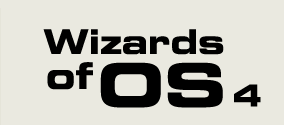|
|
|
|
|
Featuring Cooperatives for Open Culture Compliant Businesses Friday, 15 September, 10:00
Eric Poscher, Vorarlberg University of Applied Sciences
Roland Alton-Scheidl, Founder and Board Member of osalliance (formerly public voice lab)
about the opensource coop's experiences.
Peter Steurer, Tossad EU IST Project
will talk about other organisational models in the free software sector and outcomes of the tossad project.
Hans-Jügen Schaffland, legal adviser of the german umbrella organisation of cooperatives
about the European Cooperative (SCE), legal aspects and the state of cooperatives in Germany.
Mathias Bröckers, in charge of taz online
about the largest alternative daily newspaper "die tageszeitung" and how it became a cooperative. (taz has a circulation of 82.000 and 6900 cooperative members)
Ownership matters. In the era of Web 2.0, companies are being traded again for millions. But who are the beneficiaries? Users give away their content, their profiles, their preferences. The profits are being consumed by somebody else: anonymous or strategic shareholders. The users remain with the working-poor.
Two centuries ago, the movement of co-operatives started in Scotland with "villages of co-operation" where workers would drag themselves out of poverty by growing their own food, making their own clothes and ultimately becoming self-governing. Today, cooperative institutions have a predominant market share in the retail banking and insurance sectors in many countries. Nobody can buy or sell the co-operative as a whole, and the shareholders have democratic rights to control the board and the chance to influence the visions.
When it comes to the implementation of SCEs (European Co-operatives) in 2007, many countries adapt the national rules for running a cooperative. For instance in Germany, co-operatives will be allowed also to engage in the cultural or social sector. And cooperatives are being promoted by the world bank for forming coalitions of small enterprises in developing nations.
At WOS4, we would like to present the cooperative as an appropriate business environment for open culture projects. Based on research results of the Open Source Initiative Vorarlberg, we have formed OSalliance, a cooperative for Open Source solutions (formerly PUBLIC VOICE Lab). We would like to give an inside view, how the 25 members work together, which benefits they have and what typical projects look like. RegisteredCommons will also be based on a co-operative ownership model.
For the workshop, we expect attendees to bring their experience with a local cooperative from either a customer or a supplier perspective. We would like to develop a vision of a next-generation cooperative framework.
Links
 PUBLIC VOICE Lab PUBLIC VOICE Lab
 Open Source Initiative Vorarlberg Open Source Initiative Vorarlberg
 Wikipedia on cooperatives Wikipedia on cooperatives
|
|
|
 |
|
|
|


 PUBLIC VOICE Lab
PUBLIC VOICE Lab